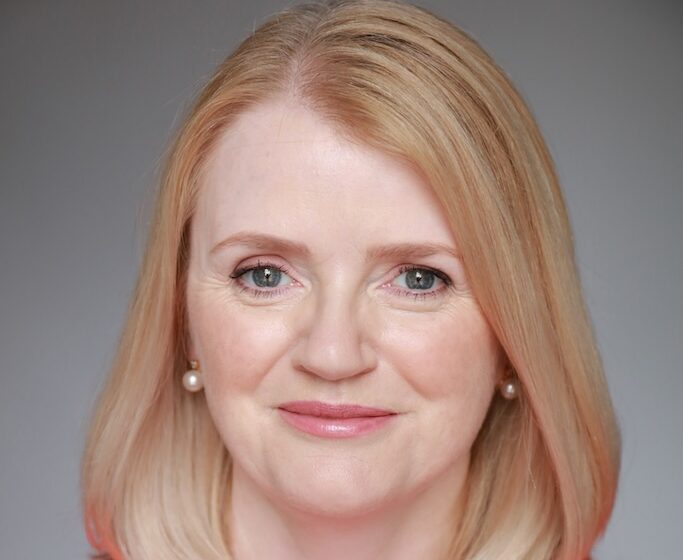Being a rep helped me get the best out of people
Meet your reps: Jeremy Baskett, one of MiP’s most experienced reps, explains how being active in the union opened doors and helped him to become a better manager.

“One of the greatest honours in my career was representing MiP at the TUC a few years ago,” says Jeremy Baskett, MiP rep and National Committee member for North East England. “Doing my three-minute bit with Dave Penman from the FDA [one of MiP’s two parent unions] was brilliant. I never thought I’d ever be on stage speaking up for the NHS at a national event like that.”
Jeremy, one of MiP’s most experienced reps, has a roving brief supporting members across Yorkshire and Humber, and chairs the Social Partnership Forum (SPF) for the region’s CCGs – one of the few multi-union forums chaired by an MiP member. After a distinguished NHS management career, he is also now a governor of Northern Lincolnshire and Goole NHS Foundation Trust.
A bigger say
Getting involved in MiP “gives you a bigger say in what goes on,” Jeremy says. As chair of the SPF, he works closely with CCGs on policy development. “I think we were the first ones to get the menopause policy through because we had the forum to do it,” he explains. “So, that was a good example of something that MiP wanted to champion, which we got through pretty quick and all the organisations signed up to it.”
Jeremy also works part-time supporting CCGs with the job evaluation process and, through the SPF, with managing organsiational change. “Usually when they are starting work on organisational change they will seek advice from me as the chair of the local SPF on how to work in partnership with the unions,” he explains.
Jeremy first got involved with MiP after working with Jane Carter, then MiP’s national officer for the region, on organisational change at the PCT where he worked. “We didn’t have a joint trade union partnership, so we set one up and got it formalised,” Jeremy recalls. “I relied a lot on my UNISONN colleague, Ray Gray, who was great at supporting us through the transition from PCTs to CCGs.”
Supporting members
“There were people who asked, ‘How can you be doing this as a senior manager ?’”, he admits. “But I kept saying that it’s not about undermining managers. If you’re fair and abide by the policy, that’s okay. But if you don’t follow the agreed rules, you’re in the wrong. Fortunately, my chief executives always agreed with me on that.”
Working with Jane, and more recently with Ruth Smith, MiP’s current national officer for the North East, Jeremy reckons he’s supported around 45 members with everything from informal advice to representing them at panel hearings. “A lot of senior managers say to me, ‘Jeremy, I don’t need to belong to a trade union, I can negotiate my way out of anything’,” he says. “But they are often the ones who are most thankful for MiP’s support at the end, because they don’t realise until they’re facing redundancy or performance management just how difficult it can be.”
That work is only set to increase as CCGs are abolished and their functions incorporated into new ICS-based organisations from 2022. “I’ve already had phone calls from members asking what this means for them,” he says. “Senior managers have been through hell and back already and now, in the middle of a pandemic, they’re being asked to do another change, as well as keeping services running.” Frustratingly, he adds, the ICS announcement in December (see page 8) put a “dead stop” to some change programmes already underway. “So people had already been through a consultation, only to be told everything is on hold and don’t worry, you’re alright. You can imagine how people feel now. They’re not at all happy.”
Understanding others
Jeremy insists that being an MiP rep never held back his career and as a senior manager he found it “immensely helpful” to have a fuller understanding of what was happening in the organisation. “I like to know how people feel, I’m that sort of manager,” he explains. “You still have to make difficult decisions, but I always want to know both sides of the argument. Working with unions helps you to understand other people’s point of view and how to get the best out of teams as well.”
He adds: “Often I would end up being the bridge between staff and the employer and I never minded that; I actually thought that was one of my key roles and people have said afterwards that I was good at that.”
- If you’re interested in becoming an MiP link member or rep, contact MiP organiser, Rebecca Hall: r.hall@miphealth.org.uk.
Related News
-

Scott Diamond: “As a paramedic, you can talk to absolutely anyone about anything!”
Scott Diamond, MiP’s National Committee rep for Scotland and a former paramedic, talks about resilience, collaboration and why managers need to make a deep connection with people. Interview by Craig Ryan.
-

Sarah Carter: “As a care home manager, you can see the difference you make to people’s lives”
MiP National Committee member Sarah Carter tells Craig Ryan about her ‘incredibly rewarding’ switch from the NHS to social care and the ‘unique and very special role’ of managing a care home.
-

Catherine McCarthy: If I hadn’t joined MiP, I would just have left the NHS
Programmer, teacher, business analyst and project manager: Catherine McCarthy beings a wealth of experience to her new role as MiP rep at the Health Research Authority. Interview by Craig Ryan.